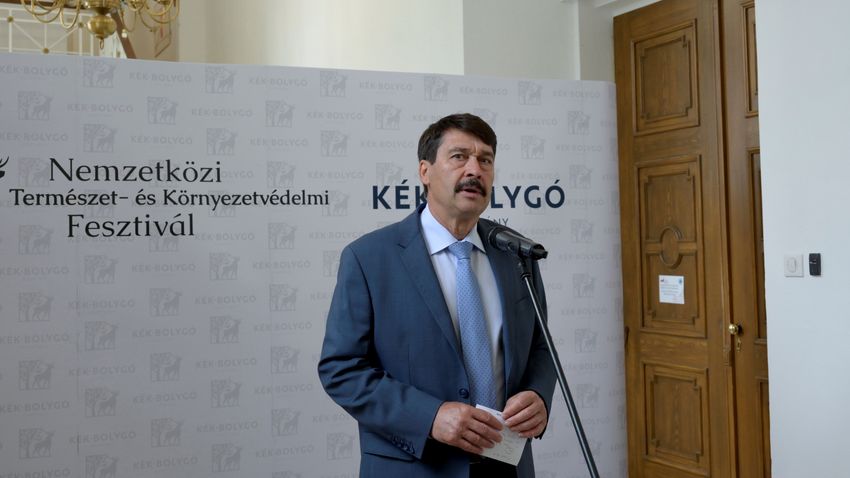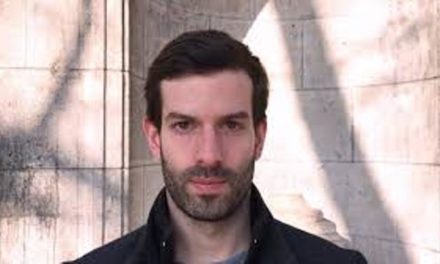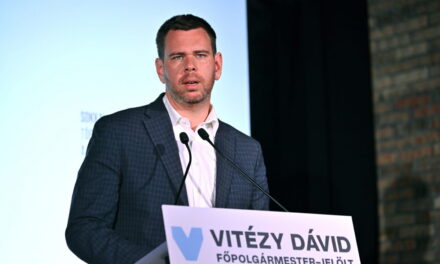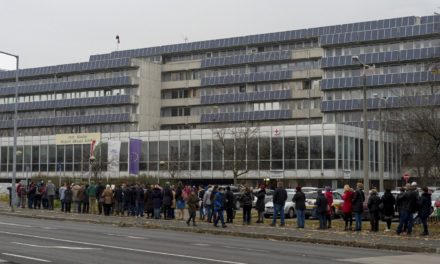Former President János Áder discussed fossil and renewable energy sources with nuclear energy expert Zsolt Hárfás in the Blue Planet podcast broadcast on Monday.
János Áder reminded me: in the broadcast two weeks ago, they talked about the energy supply, that security of supply cannot be based only on renewable energy sources, base power plants are needed, and nuclear power plants are essential to meet the climate goals. In the current broadcast, the problem of energy supply is examined from the point of view of fossil and renewable energy.
János Áder said in the program that a year ago, on June 24, the peak of the system load of that period was measured in Hungary, then the consumption was 6940 megawatts. 37 percent of this was imported, more than 40 percent came from the Paks nuclear power plant, 25 percent from gas power plants, and more than 10 percent from the Mátra thermal power plant. On that day, 59 megawatts of the 320 megawatt wind power plant capacity and 158 megawatts of the 1,600 megawatt solar power plant capacity reached consumers, so only 11 percent of the installed wind and solar power plant capacity was available that day, János Áder explained. He emphasized: this also shows that even if we increase the capacity of renewable power plants in vain, we can only obtain a fraction of the installed capacity, and that too with great fluctuations, meaning that basic power plants are needed to guarantee security of supply.
Zsolt Hárfás added to this: another historic peak occurred on January 25 this year, consumption was 7,400 megawatts, of which 2,800 megawatts were imported, which, according to the expert, is a serious security of supply and national security issue.
At the time of the new system load peak - at 5:15 p.m. - the solar power plants produced zero megawatts, and less than 100 megawatts were generated from the 325 megawatt wind power plant capacity, which means, according to the expert, security of supply cannot be guaranteed with solar and wind power plants, due to their dependence on the weather, reserve capacities are needed - he pointed to it.
He also said that when renewables produce a lot, but the system load is low, the Paks nuclear power plant is increasingly "asked" to reduce its production, but this is "not an easy task" for the nuclear power plant.
In connection with this, János Áder talked about the need for gas power plants due to fluctuations in production and consumption, in which production can be increased or decreased much more easily and with less risk, and thus the amount of electricity produced by solar and wind power plants can be kept in the grid. Zsolt Hárfás noted: in order to integrate new solar power plants into the network, large-scale network development is also necessary.
János Áder presented the example of Germany, which decided to close its nuclear power plants, but as a consequence of this decision, security of supply decreased, but the capacity and thus the emissions of coal power plants increased, which hinders the fulfillment of climate goals.
Zsolt Hárfás also spoke about the fact that the carbon dioxide emissions of the coal power plant during the entire life cycle of the power plant are 820 grams per kilowatt hour, for the gas power plant it is 490 grams,
that is, from a climate protection point of view, the gas power plant is more advantageous than the coal power plant. He believed that next to weather-dependent renewable energy sources, the best "regulatory capacity" is the gas power plant.
János Áder drew attention to the fact that it does not matter whether it is American shale gas or gas from Russian, Kazakh or Nigerian gas fields.
As he said
the extraction of shale gas is more expensive, its methane emissions are greater and the effect of the chemicals used in extraction is unknown, i.e. overall it is less favorable from the point of view of the climate. In connection with this, Zsolt Hárfás noted that the transport of American shale gas to Europe has a carbon footprint three to five times larger than that of Russian gas arriving via pipeline.
János Áder explained what was said at the general assembly of the American LNG Association, according to which American shale gas exports are already tied up, it will take six to eight years to build new capacities, and even then they would not be able to replace the entire amount of Russian gas purchased by Europe, only a third of it.
To János Áder's question whether a study had been prepared on whether Europe could wean itself off Russian gas, and if so, how long and at what price, Zsolt Hárfás said that no such study had been prepared.
Source: Hungarian Nation
Featured image: MTI













